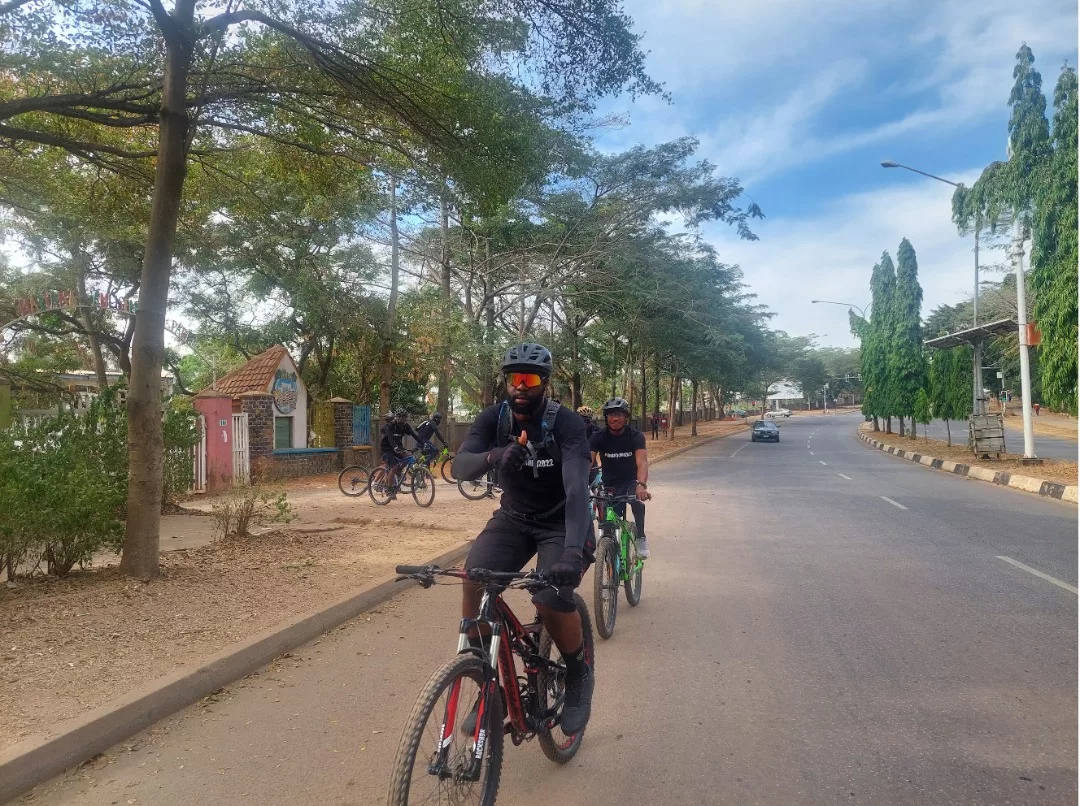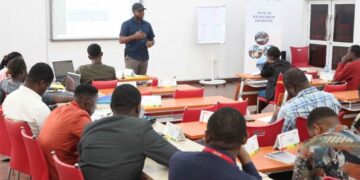On the 17th of December 2022, the Abuja Hub of the Global Shapers community (an Initiative of the World Economic Forum) held its maiden cycling ride in Nigeria’s capital city. The ride tagged #AbujaCycling2022 was part of a series of online and physical events to promote the well-being, climate and environmental benefits of commuting using bicycles and reducing the consumption of sugary drinks.
Over 30 cyclists, members of the hub, and safety officers from the Federal Road Safety Corps moved across designated routes in the Maitama district of Abuja. The team also distributed educational fliers with messages on sugary drinks tax and the adoption of cycling to cut emissions and improve well-being.
“The idea was to raise awareness on the role of cycling in reducing emissions and improving the physical and mental health of residents of the city,” said the Abuja Global Shapers Curator; Princess Ifeoma Ike. She added that the campaign was also about spotlighting the need for cycling infrastructure and culture to foster sustainable development, promote good health, prevent diseases and facilitate social inclusion.

The #AbujaCycling2022 was organized in partnership with the Chaingang cycling club and the Centre for Civic Citizens’ Welfare and Community Development. The campaign, also focuses on the sugary drinks tax, was supported by Gatefield Impact, a member of the National Action on Sugar Reduction (NASR) coalition.
The coalition has played a critical role in raising awareness of the effects of sugary drink consumption on public health. They have also been integral to the sugar tax movement, an effort by stakeholders which could decrease consumption and raise government revenue for tackling diseases such as obesity and diabetes.
A 2018 study revealed that cycling is associated with reducing stress and feelings of loneliness. It also serves as a good option for “aerobic activity which can be safely adopted by people with diabetes”.
The lead for #AbujaCycling2022, Murtala Abdullahi says the campaign hoped to encourage adoption of cycling because of its health and environmental gains. He added that “the adoption of bicycles for urban transport will help in reducing greenhouse gas emissions, which cause air pollution and climate change”.
“An increase in commuting through the provision of infrastructure to support cycling can be a valuable way of localizing the Nationally Determined Contributions (NDC) and decarbonization of the transport sectors “, said Murtala.

Aysha Hamu the co-lead of the project remarked “with regard to mental health, this project is extremely important, we wanted to make the most of the opportunity to destigmatize mental illness in our community and to promote physical activity such as cycling as a method of improving mental health and well-being, particularly among young people.”
The Abuja Global Shapers community plans to hold future engagements and campaigns to encourage policies and investments that could pave the way for rapid increase in the use of bicycles and associated public health benefits.





